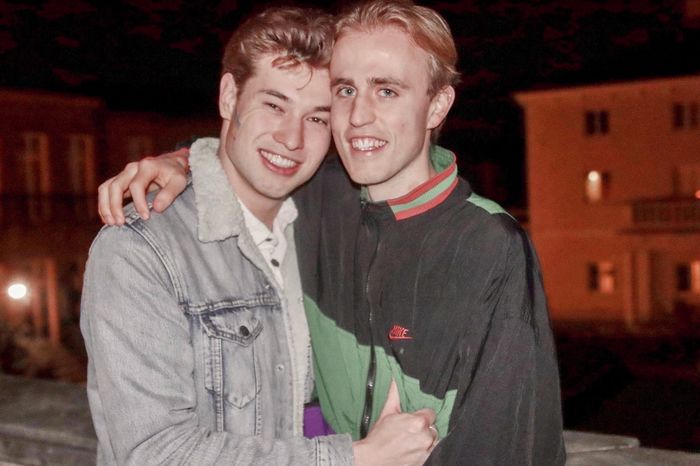The grey area of dual nationality
Senior Features Editor Georgina Buckle explores what it means to belong to a nationality without speaking its language

It was around this time last year that I was stuck making a decision which felt like it would govern my whole life: whether to take my offer to commence university in October, or whether to defer it for another year. The main enticement of the gap year wasn’t to go travelling with friends, or to take a break from academics – although those were an added bonus. Instead, the gap year provided an opportunity to finally move to France and learn the language fluently. For although my mum is French and I have a French passport, it’s only recently that I’ve begun speaking French.
It comes as a surprise to a lot of people that I am half-French, although I have never been able to converse fluently in the language. My mum has taught me many things in life, but she’s often been berated for never having taught me French. And yet, settling down to have a child with my British father in England (a country constantly enforcing assimilation to its own language and culture), it isn’t difficult to understand part of the reason why she never taught me. Living in England I was growing up immersed in a world of Twinkle Twinkle Little Star and Roald Dahl, instead of Frère Jacques and La Comtesse de Ségur. Inevitably I saw my British, paternal side of the family more often; I was and still am firmly wrapped in British culture and language, despite also having French nationality.
“I was itching to verbally express myself more as I got older”
When I was younger, the language barrier never seemed to bother me much. I would visit my French family but be too young to want to sit down and talk at length. You could find me running around in my grandparents' garden, playing uproarious games with my uncle Armand, or just sitting curled up on the sofa with a book. Clearly, French has always been a part of my life. I’ve heard my mum’s French chatter and whirlwind of conversation when visiting family; some phrases and questions are just second nature for me to understand. But when it came to more in-depth speaking and listening, I was lost. It wasn’t until my later teens that I gained greater consciousness of my inability to converse well – and these quickly turned into feelings of inadequacy.
I was itching to verbally express myself more as I got older; the incapability of formulating sophisticated sentences in French left me with mounting frustration. Although my French family speaks some broken English, it felt like a poor reflection of myself to be mute in my mother’s home language. I was yearning to share and discuss personal ‘milestones’ with them, to chime in on enriching conversation – but just couldn’t. Inevitably, I felt like my silence was morphing into a barrier which left me increasingly isolated from my family and one side of my identity.

“In a crisis words matter the most”
These feelings culminated with the sudden death of Uncle Armand four years ago. At his funeral, masses of family and friends were all there, heavy with grief. Knowing small bits of French can suffice for everyday chit-chat, but in a crisis words matter the most. What could I say to my family who were sobbing all around me? How could I express to my grandmother how much my chest ached with loss, and from seeing her in so much pain? When his friends came to offer me their condolences I could not muster the right eloquence and register of language to thank them, or to share our vivid memories of him. At his funeral, everyone was trading emotive stories; expressing grief through the re-telling of his life. But I could only hold my family’s hands tightly, and squeeze.
My insecurity about being detached from my French side is why a gap year in France seemed not just appealing, but vital. In my mind, it was a way that I could make these pieces of my life slot together. I would become fluent in French and feel more entitled to that half of myself. I wouldn’t have to worry that I wasn’t ‘French enough’ to justify my immense love for the family and home I have in France. But for various reasons, the gap year just wasn’t the right route. Instead, I decided to start French lessons in the summer and have since seen my language capabilities steadily improve. In retrospect, the gap year wouldn’t have solved my insecurities anyway. Even with my better French, I’ve questioned if I fit with my French family and have yet to find a complete answer.
My lack of verbal articulation doesn’t mean that I have foregone an inheritance of French culture. I am still so heavily shaped by my French side: living with my mother; visiting my family; exposed to their ingrained physical and gestural commonplaces. With formative influences from both sides, I feel like I exist in a grey area between the pull of my two nationalities; it has led me to wonder if it’s language, documents or culture which defines me.
 Features / Challenging tradition and dressing down in Cambridge5 November 2024
Features / Challenging tradition and dressing down in Cambridge5 November 2024 Fashion / Why did we stop wearing heels? 7 November 2024
Fashion / Why did we stop wearing heels? 7 November 2024 Comment / Don’t (just) go to your lectures1 November 2024
Comment / Don’t (just) go to your lectures1 November 2024 News / Cambridge backs tuition fee hike8 November 2024
News / Cambridge backs tuition fee hike8 November 2024 News / Pro-Palestinian protesters gather for remembrance rally10 November 2024
News / Pro-Palestinian protesters gather for remembrance rally10 November 2024







